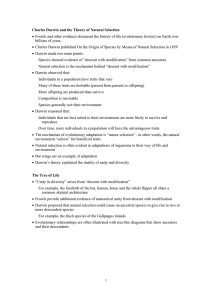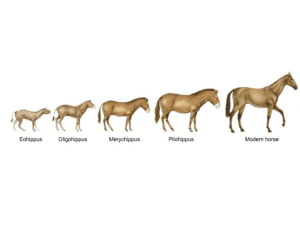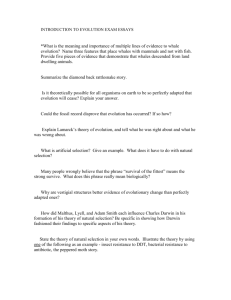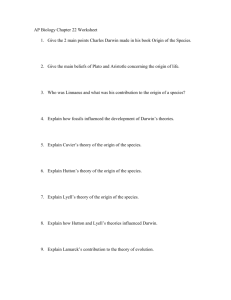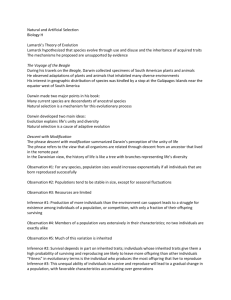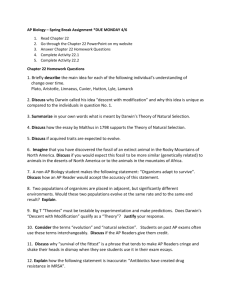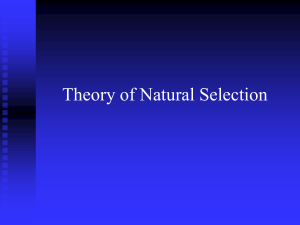Darwin*s Theory of Evolution
advertisement
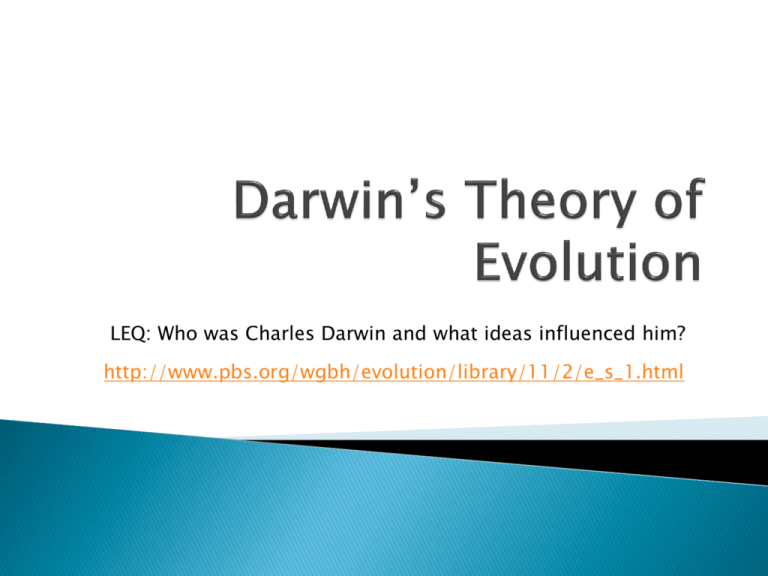
LEQ: Who was Charles Darwin and what ideas influenced him? http://www.pbs.org/wgbh/evolution/library/11/2/e_s_1.html Lemark – 1st to propose an evolutionary theory; he incorrectly suggested that acquired traits (like big muscles from lifting weights) are inherited http://www.pbs.org/wgbh/evolution/li brary/11/2/e_s_2.html HMS Beagle – 1831 @ age of 22; 5 year voyage around the world; collected thousands of specimens of fossil and living plants/animals; noticed geological features Lyell – Darwin read Lyell’s book, “Principles of Geology” which states that natural forces gradually changed the Earth’s surface - this explained how fossils of snails could be found on mountain tops or whales in deserts (he knew these forces were still taking place today) Wallace – mid 1850’s; British naturalist conceived a theory similar to Darwin’s; He shared his ideas with Darwin and spurred Darwin to publish his theory On the Origin of Species – 25 years of analysis is documented in the book; presents ideas about natural selection and descent with modification Malthus – predicted that human population will grow faster than the space and food supplies needed to sustain it, as a result population is limited by famine and disease; Darwin deduced that because natural resources are limited for all organisms, the production of more individuals than the environment can support, leads to a struggle for existence – where only some species survive to reproduce http://www.pbs.org/wgbh/evolution/li brary/02/5/quicktime/l_025_01.html Artificial selection – Farmers have shaped the evolution of plants and animals by selectively breeding particular organisms to obtain desired traits; Darwin thought – if people can do this, maybe this could occur naturally Natural Variation – Members of a population vary in their characteristics; various characteristics make some individuals better adapted to their environment Inheritance of traits – the control of what characteristic is expressed depends on the organism’s genetic make-up; this information is passed from one generation to the next Natural Selection – Every environment has limited resources; in a varied population, individuals that have characteristics/traits that make them well adapted to their environment will survive to reproduce, leaving more offspring with the same well adapted traits. Not adapted = no survival and/or no reproduction, leaving few/no offspring Diverse forms of life have arisen by descent with modification from ancestral species Natural selection is the mechanism of the modification

